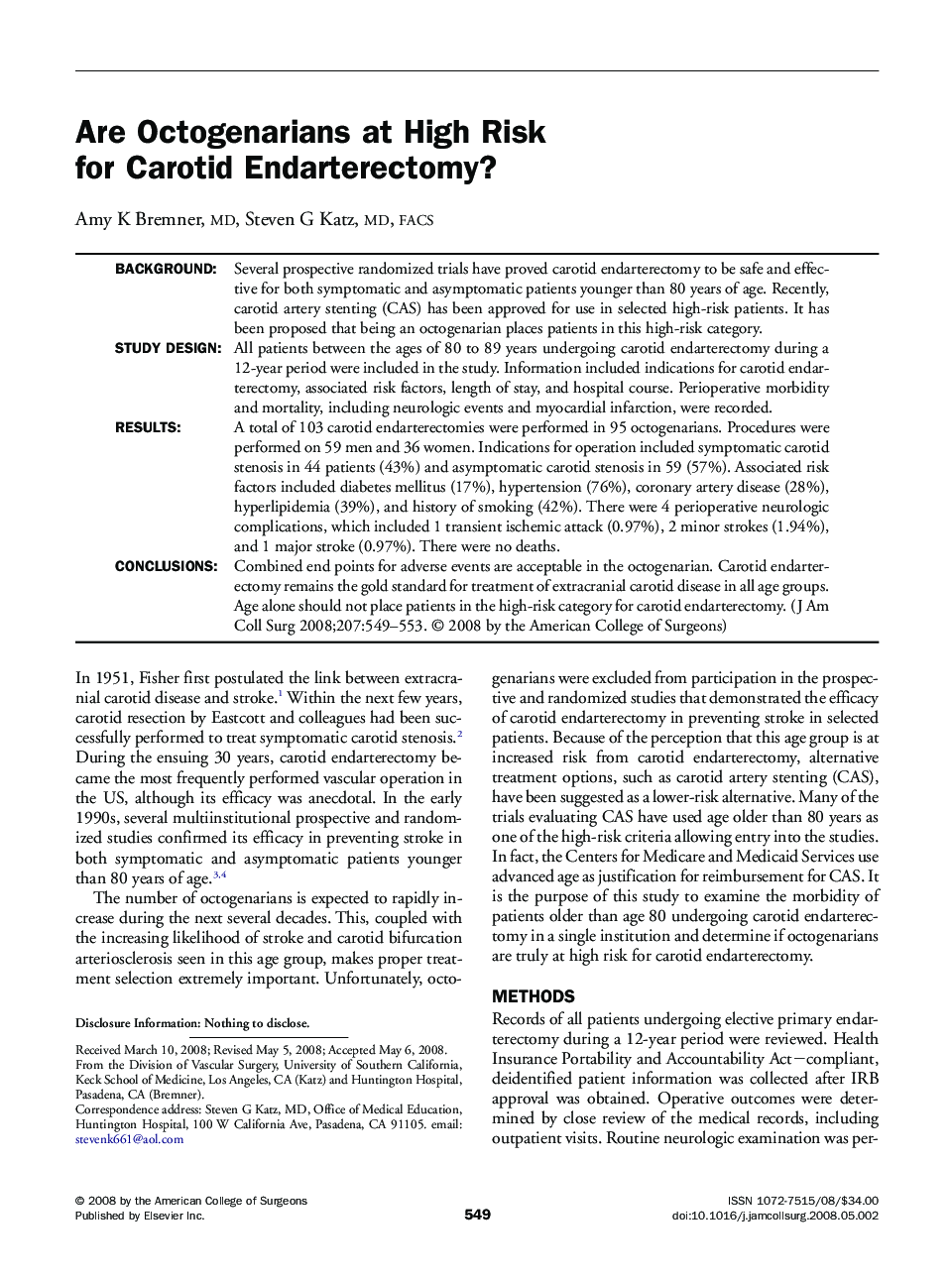| کد مقاله | کد نشریه | سال انتشار | مقاله انگلیسی | نسخه تمام متن |
|---|---|---|---|---|
| 4294615 | 1612306 | 2008 | 5 صفحه PDF | دانلود رایگان |

BackgroundSeveral prospective randomized trials have proved carotid endarterectomy to be safe and effective for both symptomatic and asymptomatic patients younger than 80 years of age. Recently, carotid artery stenting (CAS) has been approved for use in selected high-risk patients. It has been proposed that being an octogenarian places patients in this high-risk category.Study DesignAll patients between the ages of 80 to 89 years undergoing carotid endarterectomy during a 12-year period were included in the study. Information included indications for carotid endarterectomy, associated risk factors, length of stay, and hospital course. Perioperative morbidity and mortality, including neurologic events and myocardial infarction, were recorded.ResultsA total of 103 carotid endarterectomies were performed in 95 octogenarians. Procedures were performed on 59 men and 36 women. Indications for operation included symptomatic carotid stenosis in 44 patients (43%) and asymptomatic carotid stenosis in 59 (57%). Associated risk factors included diabetes mellitus (17%), hypertension (76%), coronary artery disease (28%), hyperlipidemia (39%), and history of smoking (42%). There were 4 perioperative neurologic complications, which included 1 transient ischemic attack (0.97%), 2 minor strokes (1.94%), and 1 major stroke (0.97%). There were no deaths.ConclusionsCombined end points for adverse events are acceptable in the octogenarian. Carotid endarterectomy remains the gold standard for treatment of extracranial carotid disease in all age groups. Age alone should not place patients in the high-risk category for carotid endarterectomy.
Journal: Journal of the American College of Surgeons - Volume 207, Issue 4, October 2008, Pages 549–553